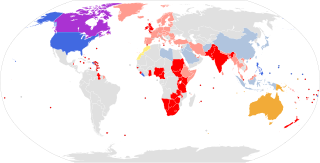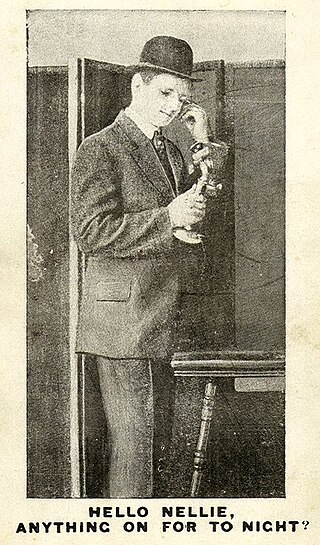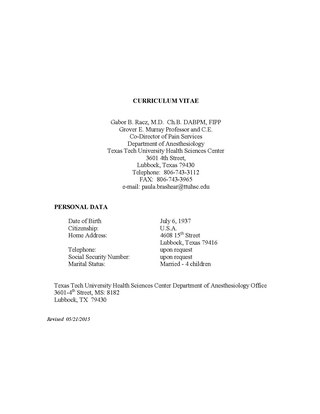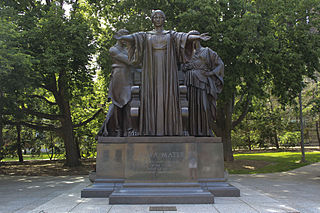
In literature, an archenemy (sometimes spelled as arch-enemy) or archnemesis is the main enemy of someone. [1] [2] [3] In fiction, it is a character who is the protagonist's, commonly a hero's, most prominent and most-known enemy.

In literature, an archenemy (sometimes spelled as arch-enemy) or archnemesis is the main enemy of someone. [1] [2] [3] In fiction, it is a character who is the protagonist's, commonly a hero's, most prominent and most-known enemy.
The word archenemy sometimes spelled as arch-enemy originated around the mid-16th century, from the words arch- [3] (from Greek ἄρχω archo meaning 'to lead') and enemy. [1]
An archenemy may also be referred to as an archrival, [4] archfoe, [5] archvillain, [6] or archnemesis, [7] but an archenemy may also be distinguished from a nemesis, with the latter being an enemy whom the hero cannot defeat (or who defeats the hero), even while not being a longstanding or consistent enemy to the hero. [8]

A double entendre is a figure of speech or a particular way of wording that is devised to have a double meaning, one of which is typically obvious, and the other often conveys a message that would be too socially unacceptable, or offensive to state directly.
Webster's Dictionary is any of the US English language dictionaries edited in the early 19th century by Noah Webster (1758–1843), a US lexicographer, as well as numerous related or unrelated dictionaries that have adopted the Webster's name in his honor. "Webster's" has since become a genericized trademark in the United States for US English dictionaries, and is widely used in dictionary titles.
This is a list of British words not widely used in the United States. In Commonwealth of Nations, Malaysia, Singapore, Hong Kong, Ireland, Canada, New Zealand, India, South Africa, and Australia, some of the British terms listed are used, although another usage is often preferred.

Merriam-Webster, Incorporated is an American company that publishes reference books and is mostly known for its dictionaries. It is the oldest dictionary publisher in the United States.

"McJob" is a slang term for a low-paying, low-prestige dead-end job that requires few skills and offers very little chance of advancement. The term "McJob" comes from the name of the fast-food restaurant McDonald's, but is used to describe any low-status job – regardless of employer – where little training is required, staff turnover is high, and workers' activities are tightly regulated by managers.

Owing to the dominance of the Google search engine, to google has become a transitive verb. The neologism commonly refers to searching for information on the World Wide Web, typically using the Google search engine. The American Dialect Society chose it as the "most useful word of 2002". It was added to the Oxford English Dictionary on June 15, 2006, and to the eleventh edition of the Merriam-Webster Collegiate Dictionary in July 2006.

A tchotchke is a small bric-à-brac or miscellaneous item. The word has long been used by Jewish-Americans and in the regional speech of New York City and elsewhere. It is borrowed from Yiddish and is ultimately Slavic in origin.

Despite the various English dialects spoken from country to country and within different regions of the same country, there are only slight regional variations in English orthography, the two most notable variations being British and American spelling. Many of the differences between American and British or Commonwealth English date back to a time before spelling standards were developed. For instance, some spellings seen as "American" today were once commonly used in Britain, and some spellings seen as "British" were once commonly used in the United States.

A staycation, or holistay, is a period in which an individual or family stays home and participates in leisure activities within day trip distance of their home and does not require overnight accommodation. In the UK, the term has increasingly come to refer to domestic tourism: taking a holiday in one's own country as opposed to traveling abroad, as well as to staying home and participating in leisure activities within day trip distance of home and not requiring overnight accommodation.

Hello is a salutation or greeting in the English language. It is first attested in writing from 1826.
A lead paragraph is the opening paragraph of an article, book chapter, or other written work that summarizes its main ideas. Styles vary widely among the different types and genres of publications, from journalistic news-style leads to a more encyclopaedic variety.
In the lineal kinship system used in the English-speaking world, a niece or nephew is a child of an individual's sibling or sibling-in-law. A niece is female and a nephew is male, and they would call their parents' siblings aunt or uncle. The gender-neutral term nibling has been used in place of the common terms, especially in specialist literature.

Merriam-Webster's Words of the Year are words of the year lists published annually by the American dictionary-publishing company Merriam-Webster, Inc. The lists feature ten words from the English language. These word lists started in 2003 and have been published at the end of each year.

In English, a curriculum vitae is a short written summary of a person's career, qualifications, and education. This is the most common usage in British English. In North America, the term résumé is used, referring to a short career summary.

Alumni are former students or graduates of a school, college, or university. The feminine plural alumnae is sometimes used for groups of women, and alums or alumns as gender-neutral alternatives. The word comes from Latin, meaning nurslings, pupils or foster children, derived from alere "to nourish".

A rivalry is the state of two people or groups engaging in a lasting competitive relationship. Rivalry is the "against each other" spirit between two competing sides. The relationship itself may also be called "a rivalry", and each participant or side a rival to the other. Someone's main rival may be called an archrival. A rivalry can be defined as "a perceptual categorizing process in which actors identify which states are sufficiently threatening competitors". In order for the rivalry to persist, rather than resulting in perpetual dominance by one side, it must be "a competitive relationship among equals". Political scientist John A. Vasquez has asserted that equality of power is a necessary component for a true rivalry to exist, but others have disputed that element.